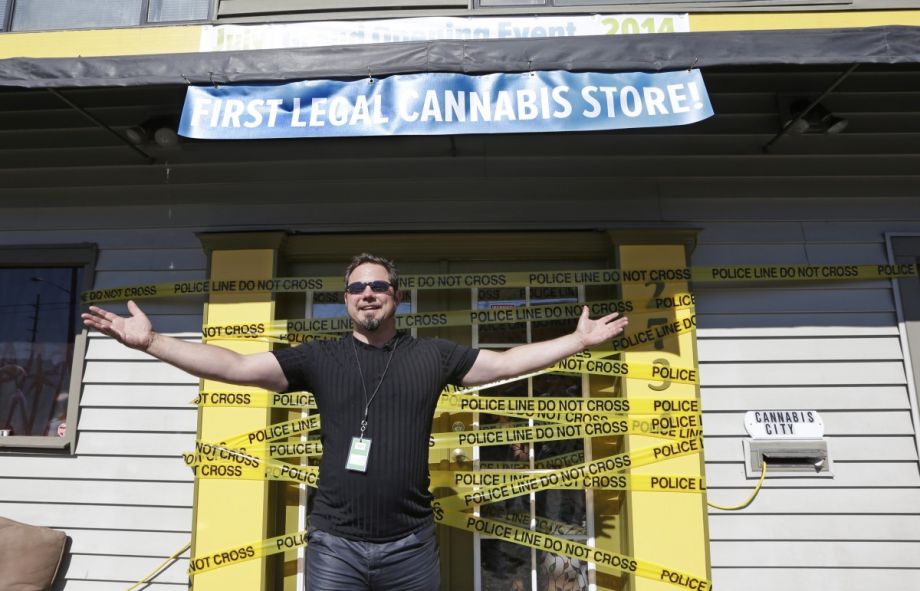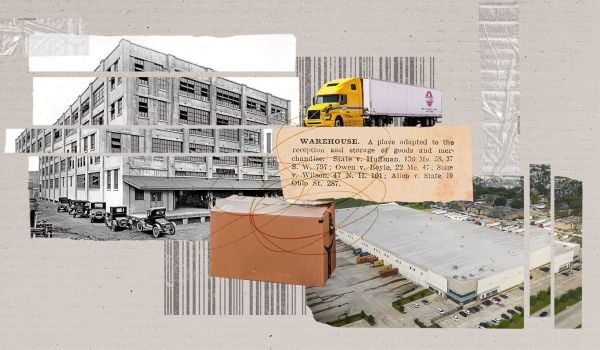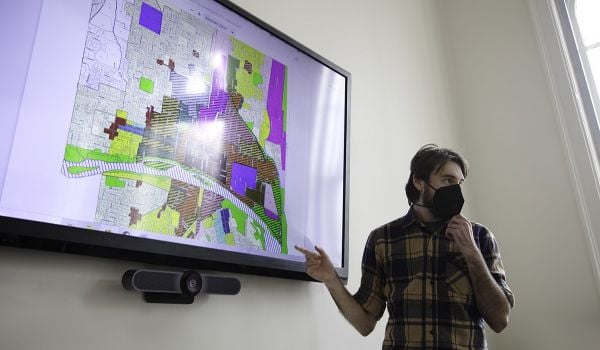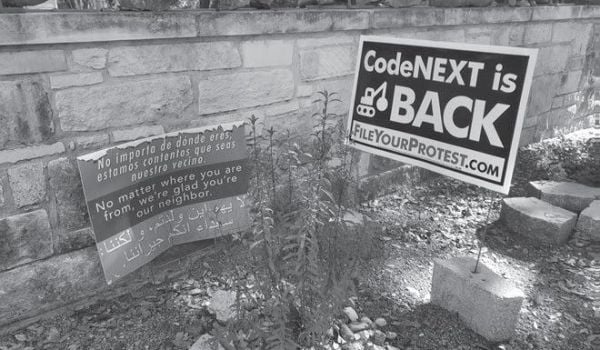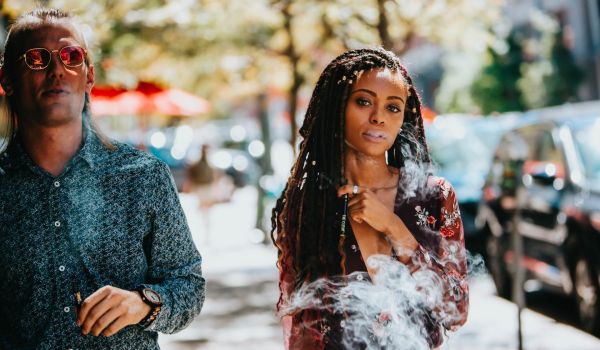With state and federal laws conflicting, municipal governments in Washington have a sticky task ahead as the first legal pot shops roll out their weed. They can encourage cannabis tourism and its General Fund payoffs and risk angering the feds, or they can follow the example of many a California municipality and use every last code in their zoning arsenal to keep marijuana out — never mind state law.
Seattle falls into the groovier first camp, according to James Lathrop.
“Seattle has been very accommodating,” says the owner of Cannabis City, Seattle’s only legal shop as yet, which opened earlier this month.
Other cities have declared moratoriums and threatened lawsuits despite 2012’s voter-passed initiative, Lathrop says. In Bellevue, officials may enforce a rule that two shops need to be at least 1,000 feet apart — even if both are state-approved. That city’s planning commission will consider additional strictures in late July, and because retailers’ exposure to schools and parks is already limited by state law, these extra layers could seriously stymie growth.
But even in the so-called Emerald City, government-sanctioned ganja is hardly wafting through the streets. Though the state Liquor Control Board — tasked with regulation — has received more than 7,000 applications from potential growers, processors and retailers, only six stores opened on the first day of legal sales and just one, Lathrop’s Cannabis City, was in Seattle.
Crowds circled the SoDo block to purchase Lathrop’s wares on July 8th. Three days later, with booming sales and limited supply, the store was forced to close temporarily, its cupboards bare.
Eventually 334 stores will be allowed to open statewide with at least 21 in Seattle. But although the city isn’t actively out-zoning pot shops, numerous gray areas in the local landscape make for a baffling start.
Parks are just one example. As The Stranger recently reported, even a single bench on a small triangle of grass can be considered a park by the state, meaning that no store could open within 1,000 feet. When the newspaper asked Liquor Control directly if one such park, Boren Place, would have restrictive merit, the state replied elusively that it “may be considered a park by definition.”
For city officials who want legalized pot, keeping up with these shifting rules is both a necessity and, no doubt, a headache.
“We want to have a successful, efficient and transparent marijuana market functioning in Seattle,” says City Councilmember Nick Licata. “So we cannot tolerate businesses that are operating outside the recognized city and state regulations. We don’t want any kind of illegal black market, because if things get too loose and screwy, the federal government may decide this experiment is over.”
Increasingly, the city seems to believe that a major source of black market activity comes from its barely legal medicinal quadrant.
Medical marijuana was (sort of) legalized in Washington in 1998, but the law did not OK dispensaries. In High Times, Russ Belville outlined how this led to non-dispensary dispensaries:
As a customer (patient) approached the counter, they would sign a note designating the clerk at the counter as their ‘designated provider.’ The clerk would offer some marijuana, free of charge, to the customer, who would then, out of the kindness of his heart, donate some money to the clerk.
Growing up to 15 plants for medicinal purposes and participating in collective gardens has been allowed under state law. But gray areas scare line-toeing municipalities.
“We’re caught in a situation where [recreational] marijuana is illegal nationally and legal in the state,” Licata says. “And in the state of Washington, medical and recreational marijuana don’t mesh very well.”
Last fall, City Council passed a bill requiring dispensaries to obtain state licenses by 2015 (no specific license for medical cannabis exists yet, so unless something changes they would need to compete with recreational shops). A letter to the governor’s office outlines council’s real concern: that patients using dispensaries aren’t actually patients.
“Medical dispensaries have proliferated,” it states. “While many of their clients live with conditions ameliorated by medical cannabis, the vast majority do not and would be better served through access made possible by Initiative 502.”
For the city, even encouraging the strictest state-regulated recreational consumption can seem like a game of municipal dodge ball. Though Lathrop says Seattle wants to foster cannabis tourism, the question remains: How?
“You can come down and buy [marijuana] but you can’t consume it in public, you can’t consume it in your hotel, you shouldn’t consume it in your car — you can’t consume it anywhere,” he says. “The city would like to set up cannabis clubs like coffee houses, but then you run into smoking laws.”
Along with City Attorney Pete Holmes, Licata is researching what it would take to set up “marijuana cafes.” But for now, these many conflicting laws are still hazy.
Case in point: Holmes, the very attorney working so closely on state and municipal laws, accidentally violated one at the beginning of July. He’d just visited Cannabis City, excited to “personally exercise that new freedom,” as he told gathered media. He just didn’t realize that bringing an unopened bag to work — even without smoking it — was against the city’s rules.
The Works is made possible with the support of the Surdna Foundation.

Rachel Dovey is an award-winning freelance writer and former USC Annenberg fellow living at the northern tip of California’s Bay Area. She writes about infrastructure, water and climate change and has been published by Bust, Wired, Paste, SF Weekly, the East Bay Express and the North Bay Bohemian
Follow Rachel .(JavaScript must be enabled to view this email address)


